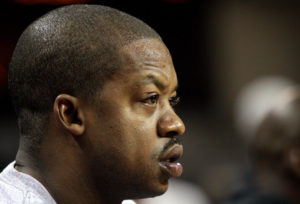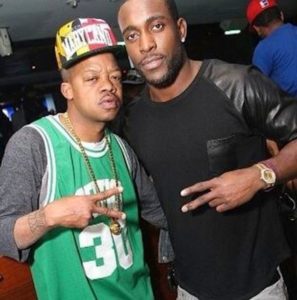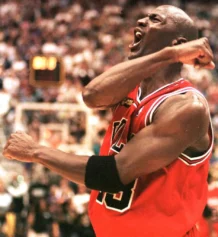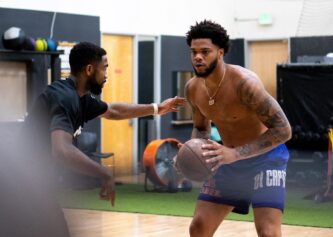
The difference between Francis then and the 38-year-old Francis now is alarming to those who know him as a giving, thoughtful man who would never put himself in a position to be accosted in that fashion.
But today’s Steve Francis is not the “Stevie Franchise” of then, although the elements that made him a likable NBA star persists amid the chaos. And that’s why friends believe he will rebound—he’s staggering, but not knocked out.
That 2004-05 campaign was his last healthy season in the league. No one knew then, but the subsequent three years of injuries diminished his talent and imploded his self-esteem. He faded into obscurity in 2008 after 10 games with the Houston Rockets.
It was then that we lost Steve Francis, just as he was losing himself. . . in pain and self-pity and most damagingly, in alcohol.
Many wondered about the Washington, D.C.-area native when he resurfaced in the last year, looking far different, diminished, puffy, aged and worn. Disturbing videos can be found on the web of Francis pouring alcohol from the bottle all over himself and then drinking it. . . before passing out.
These are portrayals of his own doing, but illusions, too, according to those who have known him for decades told Atlanta Blackstar.
“He’s a good guy, a good man,” said Andre Johnson, who began working with Francis the day after he was the No. 2 pick in the NBA Draft in 1999. “And even with the challenges he faces, those parts of who he is still show. He realizes that a lot of what has happened to him is avoidable. And he’s committed to putting himself in better positions.”
Francis’ decline is apparent in his appearance, and it is startling. He was a world-class athlete whose success was dependent on his skill and athleticism. On staying in shape. He earned $103.5 million over his nine-year career, during which he was the NBA rookie of the year and a three-time all-star.
But his fall is not uncommon, just different. Cynics are quick to judge and joke, but the dynamics of being a professional athlete do not end with money and fame. The pressure to perform is enormous. The pressure to provide can break your spirit, especially when your first instinct is to give, like friends say Francis’ is.
Usually, these athletes represent more than themselves. A few generations of family members are a part of the responsibility in most cases and an entire community in many. The weight of this can be far more imposing to those who have not had that responsibility. Sports psychologists have published studies that find many athletes in retirement struggle with coping away from the game.
Sugar Ray Leonard, the Hall of Fame former boxing champion, spoke often of going from Las Vegas hotel to hotel when he quit the sport “to feel the adulation of the people. Nothing can top that feeling. I needed it. And when I didn’t have it, well, it wasn’t good.”
Leonard admitted to drug use to stave off the bouts of depression. He’s just one example of an athlete unable to cope with life after sports.
Francis is another.
Johnson said, “He knows one thing and loves one thing. Basketball. It’s not an easy transition to be on the cover of a magazine one day and next day you have to figure out what you’re going to do with your day, with your life. That’s a lot for anyone to handle.”
Francis has been described as sensitive: When his mother died of cancer in 1995, Francis could not pull himself together to play basketball. . . for two years.
He’s also been described as caring: When a tornado struck the University of Maryland, where he played one year of college ball, he had a dinner catered for more than 700 displaced students.
He held a fund-raiser prior to the elections for new D.C. mayor Muriel Bowser. He’s put 60 kids through college through his foundation. He wants to help young artists in the D.C. area get their careers off the ground.
But to do so, he has to rise. He’s still here, “which means he still has a chance to rewrite his story,” one friend, who requested anonymity, told ABS. “Over the last several years, Steve lost who he was. He allowed the lifestyle and the money and people around him to influence him.
“But he’s a smart and intuitive guy. I’d like to believe the Steve I know is still inside him. . . and will come out for good one day soon.”
Francis remains loyal to his family, Johnson said. He takes pride in dropping off and picking up his two children from school. “His family is his foundation,” Johnson said.
“I talked to Steve after the whole chain incident. He knows that at this point in his life, he’s got to make better decisions. There have been times when he’s been great. Other times, he’s flawed, like the rest of us. But what he has shown is that he makes things happen. And there are a lot of people betting that he will regain the consistent stability in his life. Including him.”



